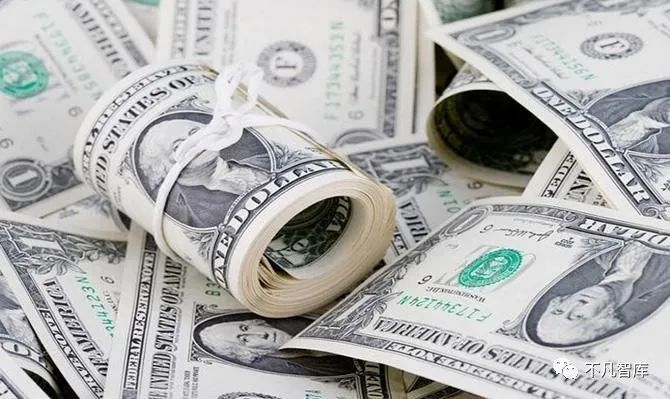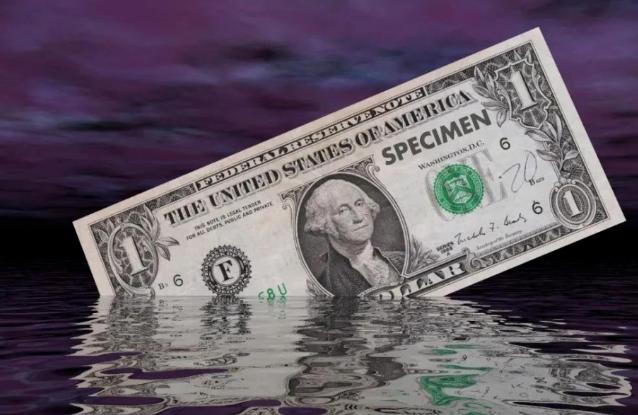Xinhua Beijing, August 1 (Yang Yang), the U.S. Treasury Department released the latest data show that the total U.S. federal government debt for the first time more than 35 trillion U.S. dollars. Experts believe that the U.S. government borrowing inordinately, will overconsume and even overdraw the hegemonic position of the U.S. dollar in the international monetary system, affecting the sustainability of the U.S. economy, and devouring the U.S. government credit.
In recent years, the U.S. debt continues to accelerate the "snowball", the U.S. government debt all the way "wildly", in June 2023 exceeded 32 trillion U.S. dollars; in December 2023 amounted to 34 trillion U.S. dollars, more than the U.S. Congressional Budget Office in January 2020 projections Five years ahead of schedule.
Addicted to Debt, Caught in a Malignant Development Pattern
Shen Yi, a professor at Fudan University, said that the U.S. government is addicted to debt, cribbing, has fallen into a vicious development mode. On the one hand, in the 1980s, the United States to implement neoliberal economic policy, the core logic of governance for the tax cuts, which led to the widening of the gap between rich and poor in American society, the United States government through the tax disposable income decline. Fiscal supply was insufficient, and the government could only obtain it by borrowing.

On the other hand, the competitive two-party politics in the United States has exacerbated this debt addiction. If one party advocates tax increases, the other party will attack it, especially if the tax increase policy is directed at the rich class, and the relevant interest groups will hinder the policy from taking hold. U.S. foreign strategy is again hegemonic, with the Russian-Ukrainian and Palestinian-Israeli conflicts, among others, leading to a steady rise in government spending. "Cutting costs can not be done, open source and become a problem, can only borrow," Shen Yi said, which formed the U.S. government's dependence on the national debt, the formation of a debt-driven governance model.
Shen Yi said the U.S. government has a very clear partisan politics and the idea of taking turns. For them, as long as my term of office debt problems do not thunder, I do not have any psychological burden, can habitually crib.
This is a U.S. election year, and the two parties are in the midst of a heated battle, but they are coincidentally turning a blind eye to the threat of runaway debt. "There are less than 100 days until the election, but even in that short period of time, our debt is expected to increase by another $1 trillion." Michael Peterson, CEO of the Peter G. Peterson Foundation of America, said, "We can't keep pretending that this isn't a problem."
Drinking the thirst will backfire on the credit of the U.S. government
In the face of huge debts, U.S. politicians and businesspeople and economists in many countries expressed concern that "drinking poison to quench the thirst" will bring significant risks to the U.S. itself and the global economic system. However, the U.S. government continues to act in its own way.

Shen Yi believes that the U.S. government is so capricious, relying on the hegemony of the dollar - the Federal Reserve continues to increase the issuance of U.S. dollars, investors holding U.S. dollars and because of the restricted investment object to invest the dollar surplus into U.S. debt. But the unbridled increase in the issuance of dollars will lead to a decline in the credit rating of U.S. debt.
He said that before, we feel that the United States of America's huge financial system and development advantages will not let the United States credit face bankruptcy, and the dollar in the international monetary system is irreplaceable. But today, along with the dollar's credit weakening due to the U.S. government's borrowing inordinately and the fading of irreplaceability, the dollar's hegemony has become a destabilizing factor that threatens the world economy.
"The world does not want to be kidnapped by the United States." Shen Yi said that many countries are speeding up the practice of "de-dollarization". The international monetary system in the emergence of a new choice, more rational investors will certainly through the diversified investment to avoid the uncertainty of the value of the dollar and the risks arising from.

